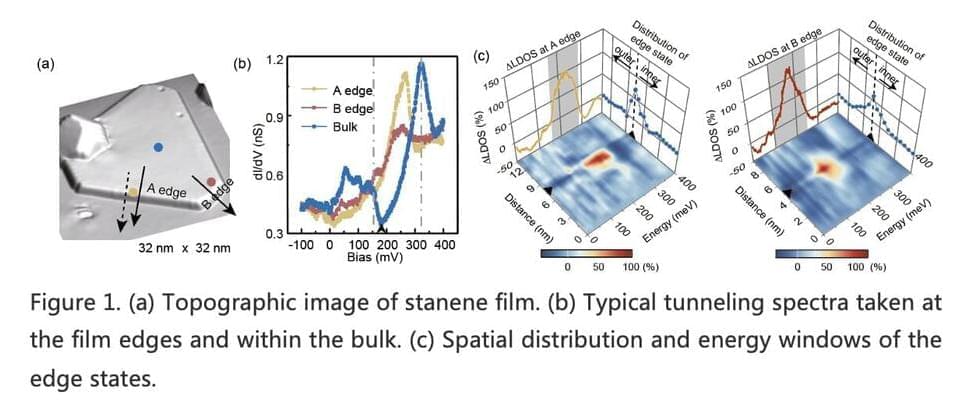Stanene is a topological insulator comprised of atoms typically arranged in a similar pattern to those inside graphene. Stanene films have been found to be promising for the realization of numerous intriguing physics phases, including the quantum spin Hall phase and intrinsic superconductivity.
Some theoretical studies also suggested that these films could host topological superconductivity, a state that is particularly valuable for the development of quantum computing technology. So far, however, topological edge states in stanene had not been reliably and consistently observed in experimental settings.
Researchers at Shanghai Jiao Tong University, the University of Science and Technology of China, Henan University, Zhengzhou University, and other institutes in China have recently demonstrated the coexistence of topological edge states and superconductivity in one to five-layer stanene films placed on the Bi(111) substrate. Their observations, outlined in a paper published in Physical Review Letters, could have important implications for the development of Stanene-based quantum devices.
